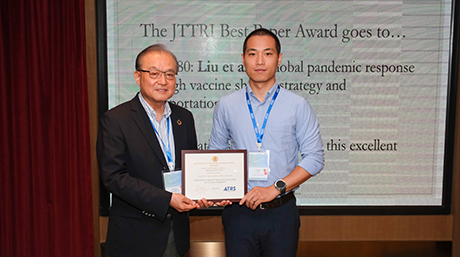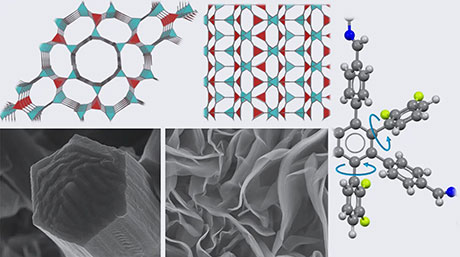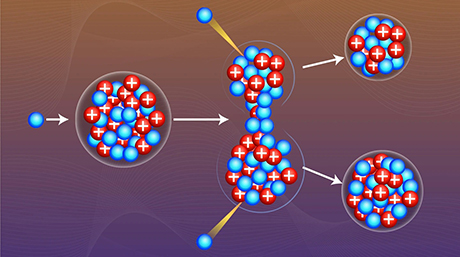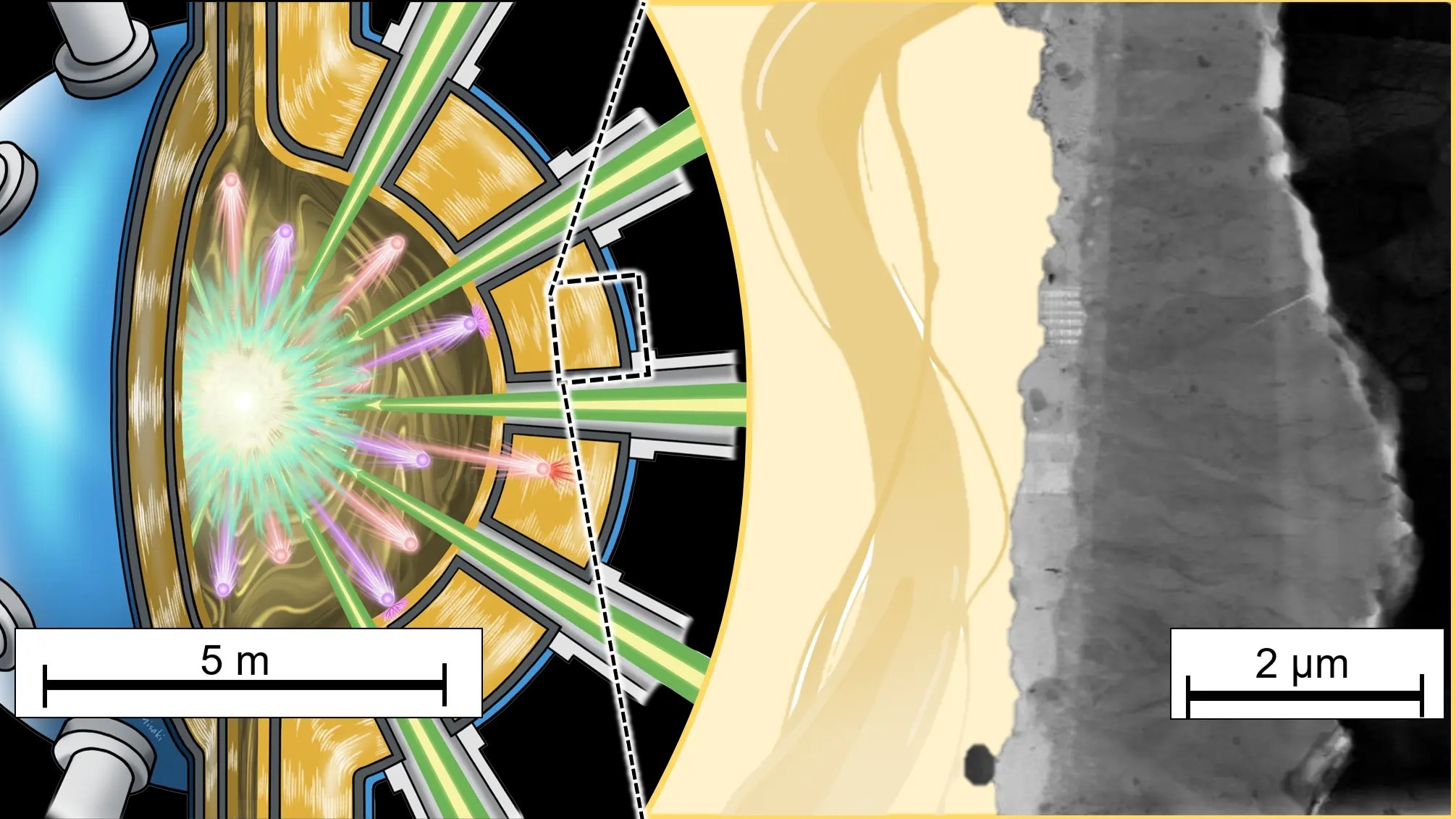Transdisciplinary Science and Engineering News
Associate Professor Shigeo NISHIKIZAWA and Professor Takehiko MURAYAMA received Best Paper Award in 2024 from Japan Association for Planning and Public Management.
Research Topic is "Determinants of attitutde formation of local residents toward solar-PV projects".
Associate Professor Shigeo NISHIKIZAWA and Professor Takehiko MURAYAMA, Department of Transdisciplinary Science and Engineering, School of Environment and Society have been received Best Paper Award from Japan Association for Planning and Public Management.
The award ceremony was held on September 6, 2024.
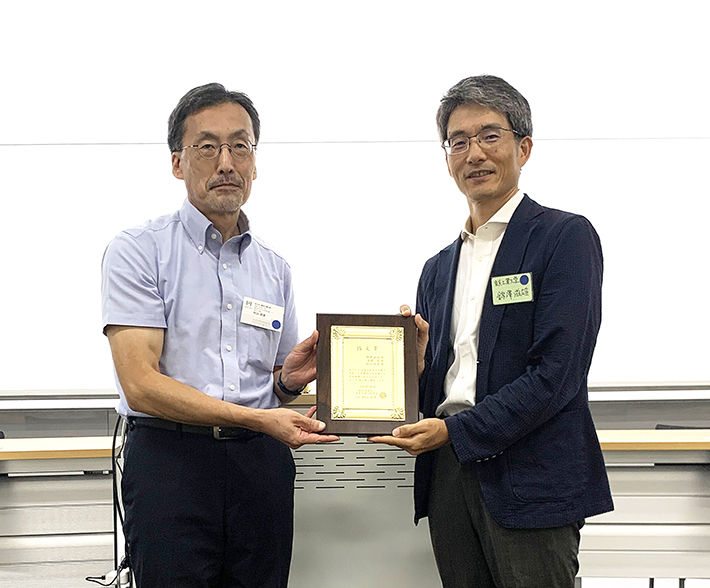
Professor Murayama (left) and Associate Professor Nishizawa (right) received the plaques
at the awards ceremony of the annual meeting.
About the Awarded Paper
- Yohei Maekawa, Shigeo Nishikizawa, Atsushi Nagaoka, Takehiko Murayama, Kiyoshi Takejima, Shinya Yasumoto, "Determinants of attitutde formation of local residents toward solar-PV projects", Planning and Public Management, Volume 46(2023) Issue 1, Pages 29-36
This paper was co-authored with Yohei Maekawa, a former master's student, and Atsushi Nagaoka, a research associate of Tokyo Tech and others. While photovoltaic power generation projects are expected to spread from the perspective of introducing renewable energy, they could also be a nuisance to residents living near such facilities. Through a questionnaire survey for residents living near an operating photovoltaic power generation facility with disputes during the project planning stage, we had constructed an attitude formation model for the facility and clarified the factors that determine attitudes toward the acceptance . In conducting the questionnaire survey, it has been highly evaluated as very helpful in similar studies that we organized the cases of disputes and their main issues and locations, conducted a survey for the municipality where the survey target is located, analyzed the characteristics of the projects, and their careful preparation in conducting the analysis.
The questionnaire survey covered all residences that could be distributed within the study area to ascertain residents' attitudes toward solar power generation facilities, based on whether or not they could see the target facility, how they felt about landscape changes caused by the project, concerns about damage in the event of a landslide, and attitudes for or against the solar power generation project. Then, a multiple regression analysis was conducted to analyze the factors of opposition to the solar power generation project and discomfort with landscape changes, and a model of residents' opposition attitude formation was created. The results suggest that installation in mountainous forests has a strong influence on discomfort with landscape change, which in turn influences opposition to the project, and that in order to gain local understanding of solar power generation projects, it is important to consider the scale and the location of the project, and the implementation of an appropriate project's process.
Comment from the Award Winners
We are greatly honored to receive the Best Paper Award. I developed the research framework for this paper with the first author, Mr. Yohei Maekawa, and the questionnaire survey and analysis were conducted mainly by Mr. Maekawa.Without his contribution, this achievement would not have been possible. This research was also supported by a research grant from the International GIS Center, Chubu University, as part of the “Joint Usage/Research Center for Digital Earth to Address Emerging Complex Systemic Problems” and the co-authors, Professor Kiyoshi Takejima and Professor Shinya Yasumoto, provided valuable data for visibility analysis. We would like to thank them again for their efforts and cooperation.
Local conflicts caused by renewable energy projects, which are the focus of this research, have become a social problem. Our research group has been studying this trend for more than 10 years, and according to our findings, local conflicts caused by photovoltaic power generation facilities mounted on the gound began to occur around 2010, and are now being reported throughout the country. Although this paper has discussed cases of landscape issues, we also found complaints and opposition due to landslides, soil runoff, reflected light from the modules, and small fires caused by flooding. Unfortunately, solar and wind power have become representative of nuisance facilities today.
In this situation, some renewable energy facilities have begun to open their power sources to local residents for use in times of disaster, or to develop solar power generation on abandoned farmland in a farming style called solar sharing, which leads to community development such as citizen farms, harvest festivals, and environmental education. These projects are expected to increase the acceptance of the facilities to local residents, but further study is necessary to determine what factors are involved in acceptability, and we will continue to explore this issue.
Related Links
- "Determinants of attitutde formation of local residents toward solar-PV projects"|Planning Administration|J-STAGE
- Researcher Information - Takehiko MURAYAMA|Researcher Finder Science Tokyo STAR Search
- Researcher Information - Shigeo NISHIKIZAWA|Researcher Finder Science Tokyo STAR Search
- Murayama Laboratory
- Nishikizawa Laboratory
- Society Awards|Japan Association for Planning and Public Management(in Japanese)
- Japan Association for Planning and Public Management(in Japanese)
- International Digital Earth Applied Science Research Center|CHUBU UNIVERSITY
- International Association for Impact Assessment conference held in Japan|formerly Tokyo Tech
- Global Engineering for Development,Environment and Society Graduate Major|Education|Department of Transdisciplinary Science and Engineering, School of Environment and Society
- Transdisciplinary Science and Engineering Undergraduate Major|Education|Department of Transdisciplinary Science and Engineering, School of Environment and Society
